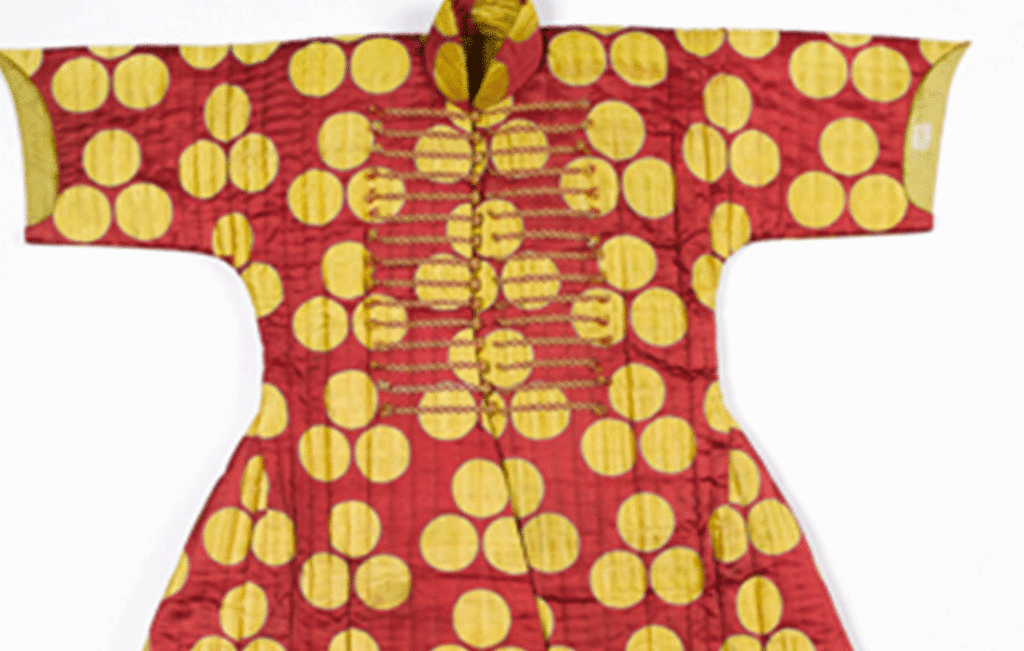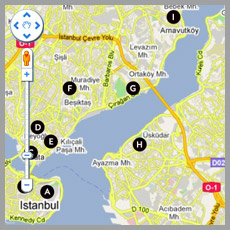by Hülya Tezcan
The research performed by associate professor Dr. Hülya Tezcan on nearly one hundred garment pieces including shirts, collars, skullcaps and covers at the sultans’ garments department of the topkapi palace museum brings to the daylight the mysteries of the court.
“Enchanted Shirts” is the title of an interesting book based on a research performed by Associate Prof. Dr. Hülya Tezcan on nearly one hundred pieces of clothing including 87 shirts embroidered with talismans, one attached collar, five skullcaps and ten embroidered covers at the Sultans’ Garments Collection of the Topkapı Palace Museum, revealing the secrets of the Ottoman court.
The talismanic shirts examined in the book are those special garments supposed to protect sultans and other members of the dynasty from illness, from ‘evil eyes’ and to bring victory at the battle field. The shirts worn during military campaigns by the sultans embroidered with the ‘Al-Fath Surah’ (Conquest chapter of the Holy Qur’an) present interesting details for art historians.
Examples of Islamic symbolism
The book analyzes from an academic point of view the handicraft work of the embroideries in relation with Islamic symbolism, sheds light on the meaning of the Islamic calligraphy on the shirts, explains by which craftsmen and to which end these shirts were manufactured and on which occasions they were worn by Ottoman rulers from Sultan Cem to Murat III.
Tradition from China to Spain
Talismanic shirts are not confined to the Ottoman court and geography, according to the research conducted by Dr. Tezcan, but people in various countries from China to India, from Spain to Japan believed in the protective power of blessed garments. Talismans called ‘Yantra’ were being used in China by spiritual practitioners. Until the 15th and 16th centuries, sultans in India were wearing talismanic shirts in the hope to be shielded from evil. In Japan, it was believed that white tunics inscribed with special prayers would render invisible those wearing them.
In the 19th century, wealthy people in Spain were ordering custom-made talismanic shirts.
Dr. Hülya Tezcan’s book of 204 pages published 2011 by Timaş Editions gives its readers the possibility on the one hand, to dissect one by one the good luck charmed shirts and talismanic tunics of the Ottoman Sultans and, on the other hand to have an overall insight into the general practice of talismanic shirts.
Hülya Tezcan
Hülya Tezcan graduated in 1968 from the Art History Department of the Faculty of Letters of İstanbul University. Having started her academic career at the Topkapı Palace Museum in 1971, she was in charge of the Sultans’ Garments Department from 1978 onwards and retired in 2006.
Her work on the archaeology of the palace in the pre-Ottoman period brought her the Doctorate (PhD) Degree in 1983. Her PhD dissertation was published by the Turkish Touring Club Editions in 1989 under the title “Archaeology of the Topkapı Palace and its Vicinity in the Byzantine Period”. Dr. Tezcan published over one hundred articles in academic reviews, wrote articles for encyclopaedias, made various communications at national and international fora and was active as curator as well. The titles of books published by Dr. Tezcan are as follows: “Ottoman Weaving Art: Satin of Satins”, “Silk: Imperial Ottoman Silks and Velvets”, “Silks for the Sultans, Ottoman Imperial Garments from Topkapı Palace”, “Kaaba Covers, Estar-ül Haremeyn-i Şerifeyn İstanbul”, “Children at the Ottoman Court: Life and Clothing Style of Princes and Princesses”, “Garmentmaker of the Court: M. Palma”
This article has originally appeared in “Müze” Magazine, published quarterly with the contributions of the Ministry of Culture and Tourism. We would like to thank TÜRSAB Museum Enterprises for sharing this piece with Istanbul Digital Platform followers.




















